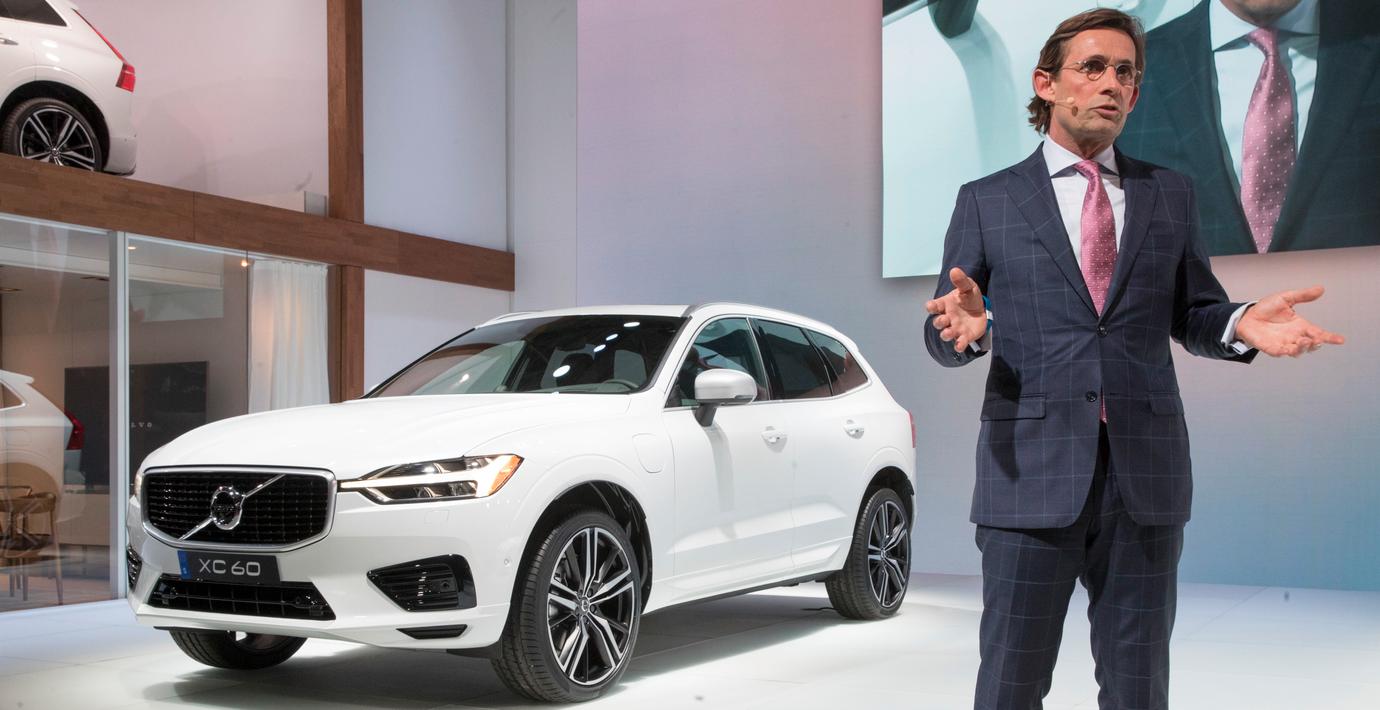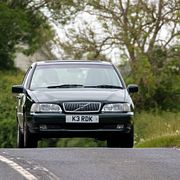bakgrund
Volvos nuvarande modeller
Wikipedia (en)
Volvo Cars (Swedish: Volvo personvagnar), stylized as VOLVO in the logo, is a Swedish vehicle manufacturer established in 1927 and headquartered on Hisingen, in Gothenburg. As of 2016, 61.4% of its 31,416 worldwide employees were still in Sweden.
Although often conflated with the Swedish-owned heavy truck and construction equipment conglomerate AB Volvo, also based in Gothenburg, the two firms have been independent since AB Volvo sold Volvo Cars to Ford Motor Company in 1999. Volvo Cars has been owned since 2010 by the Geely Holding Group, a Chinese multinational automotive manufacturing company. Both AB Volvo and Volvo Cars share the Volvo logo and cooperate in running the Volvo Museum.
Volvo Cars was founded as a subsidiary of the ball bearing manufacturer SKF. When AB Volvo was introduced on the Stockholm stock exchange in 1935, SKF sold most of the shares in the company.
Volvo Cars manufactures and markets sport utility vehicles, station wagons, sedans and compact executive sedans. With approximately 2,300 local dealers from around 100 national sales companies worldwide, Volvo Cars' largest markets are China, the United States, Sweden, and the other countries in the European Union.
In 2015, Volvo sold more than half a million cars for the first time in its 89-year history. Volvo reported strong sales from all three core global regions. Sales in Europe rose 10% in 2015 to 269k, representing over 50% of total global volume. Volvo’s revival in the US gained momentum, with sales up 24% in 2015, while China was flat amid a challenging sales environment, but sales were up 11% in the fourth quarter.
In July 2017, Volvo announced that new models launched from 2019 will be fully electric or hybrid-electric, heralding the end of production of nearly a century of Volvo vehicles powered solely by the internal combustion engine.




